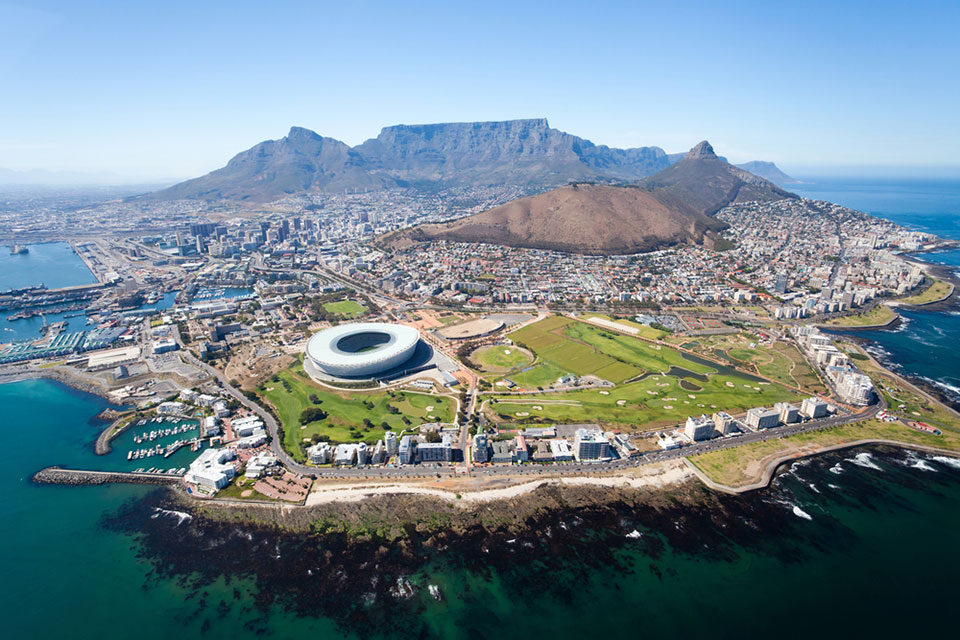South Africa Faces Challenges with Carbon Border Adjustment Mechanism

At a climate change conference in Pretoria organized by the National Treasury and the World Bank, South African President Cyril Ramaphosa said that the Carbon Border Adjustment Mechanism (CBAM) could significantly impact developing economies unless they transition swiftly from fossil fuels to green energy.
Ramaphosa highlighted the unsustainable carbon intensity of South Africa’s economy, which is heavily reliant on coal for electricity. This dependence has begun to pose significant risks. In 2022, South Africa was the most carbon-intensive major economy, generating 709 grams of carbon dioxide per kilowatt-hour of energy, according to the think tank Ember. Climate Transparency ranked South Africa among the top 15 global leaders in greenhouse gas emissions, surpassing countries like Turkey, Italy, France, and the UK.
Although South Africa’s new energy minister has vowed to expedite the shift to renewable energy, succeeding a predecessor who supported the coal industry, specifics of the plan remain unclear. Western donors have offered substantial loans to support the country’s environmental transition, but South African officials argue that these loans are insufficient to meet the necessary funding.
Despite possessing some of the world’s best solar and wind capacities, South Africa struggles with investor reluctance due to prolonged bureaucratic delays and political instability. Last year, the government delayed decommissioning eight coal-fired power plants until 2030, citing energy security concerns.
Impact assessments by Africa Confidential indicate that South Africa, Mozambique, and Angola will be the hardest hit by CBAM in Africa. The African Climate Fund’s worst-case scenario predicts a 4% decline in the continent’s exports due to the mechanism.
Economists suggest that African nations might impose their own carbon levies or use “resource shuffling” to export low-emission goods to Europe and high-emission goods to other markets to mitigate CBAM’s impact.
Previously, South Africa and India intended to challenge CBAM at the World Trade Organization, but recent rhetoric has softened. The European Commission has begun negotiations with several governments, including Pretoria, to ease the consequences of the CBAM’s implementation.
In May, South Africa informed the World Trade Organization of its plan to introduce a 9% protective duty on imports of hot-rolled steel from all countries for 200 days, starting June 28, 2024. This measure aims to shield local industry from import surges, with developing countries being exempt from the duty.
| Country | Capital | Head of State | Head of Government | GDP (nominal) per capita | GDP (PPP) | GDP (PPP) | GDP (PPP) per capita |
|---|---|---|---|---|---|---|---|
| South Africa | Pretoria | Cyril Ramaphosa | Cyril Ramaphosa | 380.906 | 6.191 | 997.444 | 16.211 |
Have you read?
Highest-Paid Athletes in the World.
Largest stock exchanges in the world by market capitalization.
Countries with the largest air forces in the world.
Best European destinations to travel to as a student.
Largest Cities in Africa.
Bring the best of the CEOWORLD magazine's global journalism to audiences in the United States and around the world. - Add CEOWORLD magazine to your Google News feed.
Follow CEOWORLD magazine headlines on: Google News, LinkedIn, Twitter, and Facebook.
Copyright 2025 The CEOWORLD magazine. All rights reserved. This material (and any extract from it) must not be copied, redistributed or placed on any website, without CEOWORLD magazine' prior written consent. For media queries, please contact: info@ceoworld.biz







